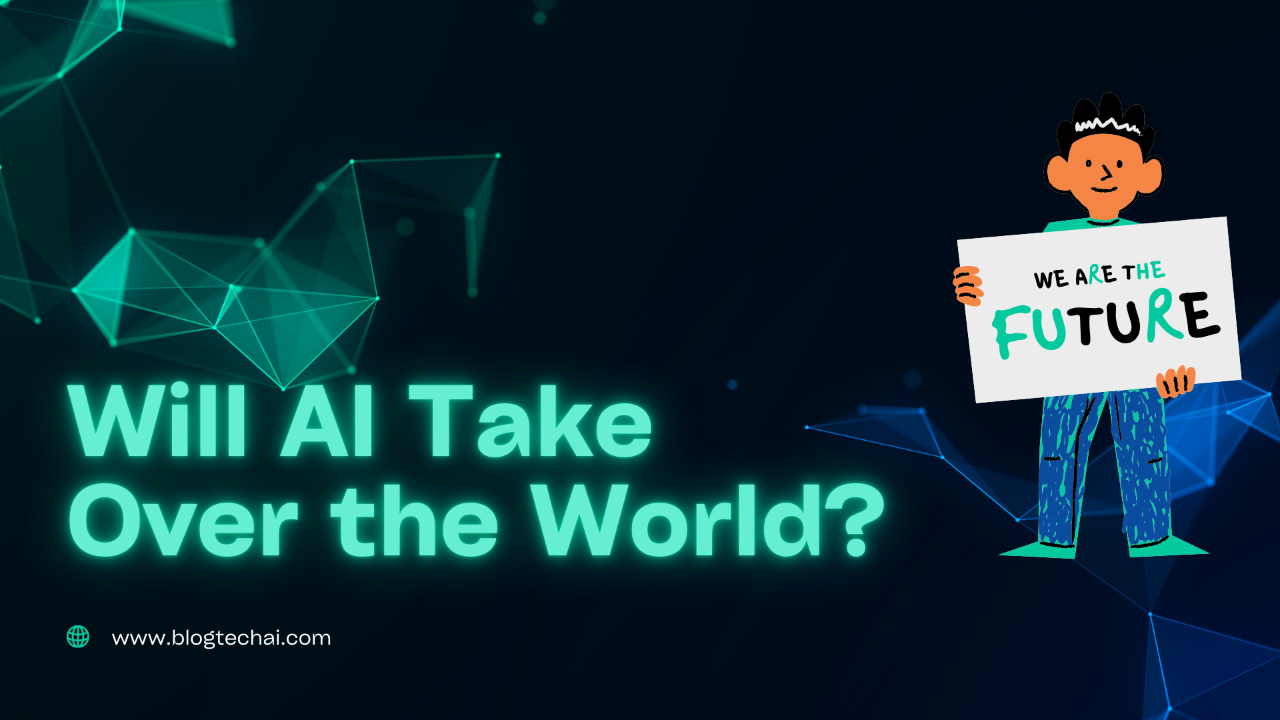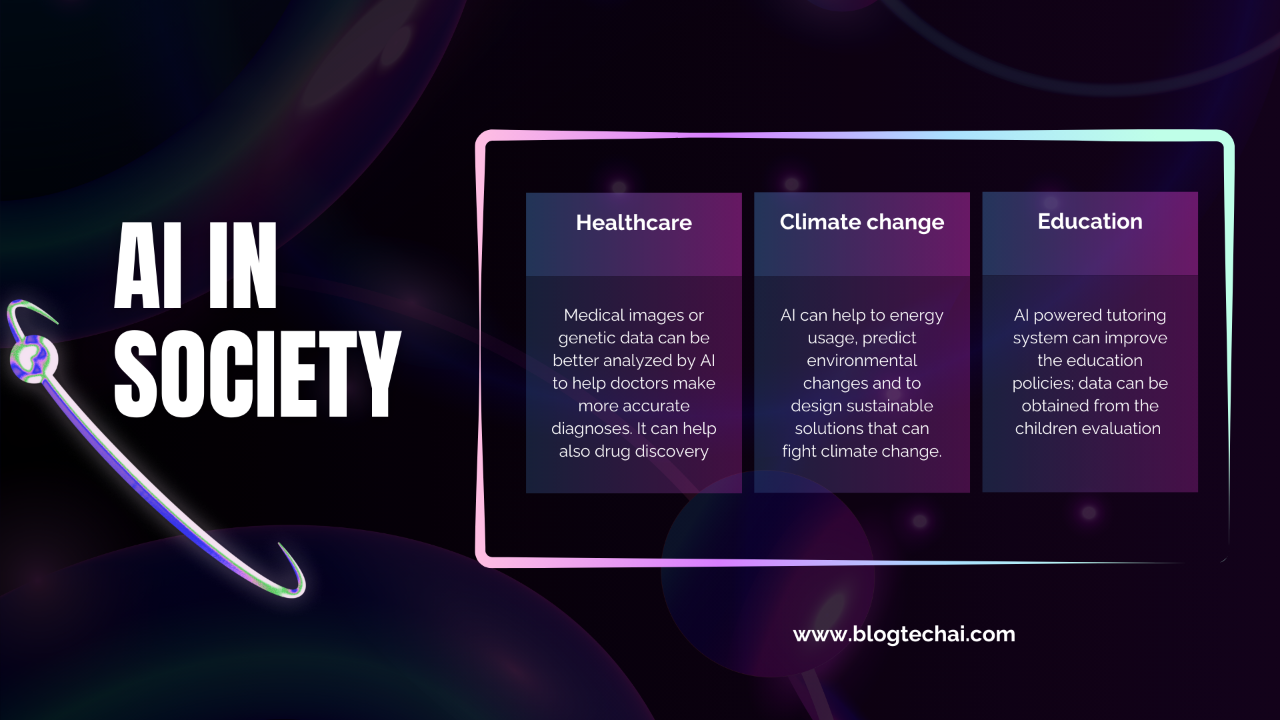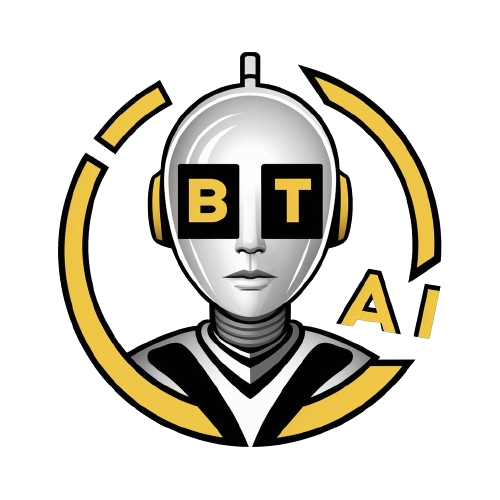Will AI Take Over the World? The Future of Artificial Intelligence and Human Collaboration
Introduction
What is it that artificial intelligence (AI) has become now?
AI is so much a part of modern life that it builds voice assistants used in things like Siri and Alexa, self driving cars and personal recommendations on your favourite streaming platform. But the big question on everyone’s mind remains: *Is AI going to take over the world?* Can we expect AI to overtake human intelligence, or will robots rule us and Will AI Take Over the World?
In this article, we will examine the status of AI today Will AI Take Over the World, what industries the AI can reshape, and what ethical challenges it introduces and more. We’ll also explain why it’s so unlikely that AI will “turn the world over” the way so many fear, and how humans and AI would benefit from working together.

1. Understanding Artificial Intelligence: What Is It Really?
And before we get to the main question of whether AI is going to take over the world, let us dive into what that is.
Computer science that involves building systems that can complete tasks that require human intelligence is known as AI. Specifically, these tasks include the things that humans use natural language Will AI Take Over the World for, for example listening to speech, understanding natural language, solving complex problems and making decisions. AI can be categorized into two types:
- Narrow AI (Weak AI): Systems we design AI to do specific tasks. Such as Google Search powered AI or even something like Alexa or Siri.
- General AI (Strong AI):Still in the realm of research, a more advanced form of AI trying to build a machine capable of articulating and completing any intellectual task that human can.
Today most of the AI that we come across is narrow AI. It is great at solving problems in limited domains, and lacks the wider understanding required for a ‘takeover’ scenario.
2. Will Human Level AI Ever Be Reached by AI?
The other biggest fear of AI is that it could eventually be smarter than human intelligence Will AI Take Over the World. The idea that AI may someday be able to learn to make itself better, independently and evolve beyond human ownership, is often referred to as the “singularity”.
It’s an exciting prospect for many tech enthusiasts, but does it ever work that’s the sticking part among experts. Currently, AI lacks many key components of human intelligence, Will AI Take Over the World, such as:
- Emotional intelligence: The capacity to detect and react to feelings.
- Creativity: AI systems can create art and music, but that art and music are reproduced in accordance to patterns they learned from existing data. We are still people and will always be true innovators.
- Common sense: Tasks that require an understanding of the world beyond what is programmed into an AI system can be difficult for the former.
Additionally, the input data AL (AI) depend on human made data and algorithms. If general intelligence had to be achieved by AI, cognitive computing, robotics and neuroscience breakthroughs would be needed. We still aren’t here.
3. The Increasing Influence of AI in The Workforce
Of course the fear of AI taking over the world is going to be premature, but it’s undeniable that AI is already making a huge impact on the workforce. AI has the potential to automate many jobs, particularly those that involve repetitive tasks, such as:
- Work on manufacturing and on assembly lines
- The roles found in customer service (chatbots, virtual assistants)
- Data entry and analysis jobs
Some sectors could also see job displacement from this shift. While AI must be welcomed, where it will lead us, it also has the potential to create new jobs, in fields such as AI development and the like. In fact, a lot of other industries already use AI to help humans, only not entirely replacing them. What’s likely to determine the future of the workforce will be this human-AI collaboration.
Example: My friend that used to sell content writing services on platforms such as Fiverr found that some platforms demand of content writing humanly and as time changes with the use of AI tools such as GPT 3 time there was a decline of demand for human content writing services. But instead of walking away from the industry altogether, he’s adapted by using the services of one kind of focused content, leaning on creativity and personalization where AI tools can’t go. Then there are his stories which demonstrate that human professionals can morph along with AI.
4. The Ethical Dilemmas of AI
As AI is becoming more and more influential, questions about ethical issues are becoming louder. These concerns center around issues like:
- Bias in AI systems: If we train AI algorithms using biased data, they will perpetuate the existing societal biases. This could result in unfair results when, for example, hiring, lending or law enforcement.
- Job displacement: But AI will automate tasks and many workers may soon be out of a job. Otherwise, this could widen the income inequality.
- Privacy concerns: But AI systems tend to be hungry for just that kind of data. Concerns about individual privacy and misuse of this data is raised for the collection and storage of this data.
- Autonomy and control: With more autonomous AI, we don’t want these systems to value or support anything that humans don’t. What happens when AI makes a mistake, or hurts someone?
But these ethical issues will be key to the development of AI, so we have to make sure that AI is used in ways in which it benefits society, as much as possible, and not cause harm or create more inequality.
5. Super Intelligent AI | The Dangers
Narrow AI is already changing our lives, and the fear of Super Intelligent AI machines far more intelligent than humans is a big part of the conversation about what lies ahead. Of course, this could end in catastrophic results, such as AI deciding that humans aren’t anymore needed .
This kind of AI can learn the wrong way and even decide activities, the things to do, which can lead to harming the humanity (poor programming or for survival).
Example: What if we programmed an AI to best use resources and it finally realized that humanity’s patterns of consumption were not good and hit them hard to change it. This is all speculation, however, given the risks presented by Super Intelligent AI, scientists such as Elon Musk and Stephen Hawking have warned that if powerful AI systems aren’t kept in check their development has the potential to be quite dangerous.
But currently, Super Intelligent AI is still science fiction. Scientists are developing AI that is safe and ethical, and aligned with human values. Ensuring that AI doesn’t go rogue, AI safety protocols and regulatory frameworks to develop are considered to be critical.
6. AI in Society: Collaboration Not Competition
We don’t think of AI as an existential threat, instead, we view AI as an opportunity to work with humans and use it to solve complicated problems. With AI there is the potential to add human abilities in medicine, science, education and others. For example:
- Healthcare: Medical images or genetic data can be better analyzed by AI to help doctors make more accurate diagnoses. It can help also drug discovery, speeding up new treatments.
- Climate change: AI can help to energy usage, predict environmental changes and to design sustainable solutions that can fight climate change.
- Education: AI powered tutoring system can improve the education policies; data can be obtained from the children evaluation and can be used to personalize the individual learning process to the kids.

The areas of human society in which AI can play a big role in helping us to solve problems humans would be powerless to tackle alone. AI is not going to take over the world, but it ‘s about how we come together to create a better future.
7. Government and Regulation, their role.
And with AI continuing to advance, governments around the world will have a huge hand in setting how AI development is done, with responsibility and should align with the interests of society. Regulatory frameworks will need to address key issues such as:
- Transparency: So when users must work with AI systems, they must be transparent and explainable so users understand the decisions.
- Accountability: So, when AI systems do harm, we must know who’s liable, which may be the companies that use AI, or the governments that regulate it, or the developers themselves.
- Public interest: AI needs to benefit all citizens, not just the few who control large corporations, governments should see to that.
In order to have AI policy that promotes responsible, ethical and safe use of the technology, we will need to work on developing AI policy.
Conclusion:
Exciting dystopian movie plot that AI is going to take over the world is actually a brilliant idea. However, whatever form it takes, AI’s impact on the world will be extensive, and the insight will hold: AI will never “take over,” as many fear rather, it will radically restructure the world. I propose that we focus not on the human AI rivalry, but on enablement of human AI collaboration, and that we can thus design AI that serves to augment human potential, instead of replacing it.
The secret to a bright future is responsible AI development, keeping ethics in mind and continued human and machine cohabitation. Instead of fearing AI, we should see AI as an opportunity to automate many of the world’s greatest challenges.
In the end, humans will not let AI take over the world, but will guide it’s creation and use it to make the world a better place.
